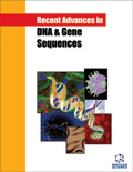Abstract
During the past couple of decades, the amount of research examining the genetic underpinnings to antisocial behaviors, including crime, has exploded. Findings from this body of work have generated a great deal of information linking genetics to criminal involvement. As a partial result, there is now a considerable amount of interest in how these findings should be integrated into the criminal justice system. In the current paper, we outline the potential ways that genetic information can be used to increase the effectiveness of treatment programs designed to reduce recidivism among offenders. We conclude by drawing attention to how genetic information can be used by rehabilitation programs to increase program effectiveness, reduce offender recidivism rates, and enhance public safety.
Keywords: Genetics, recidivism, rehabilitation, responsivity, risk, treatment.
 30
30

